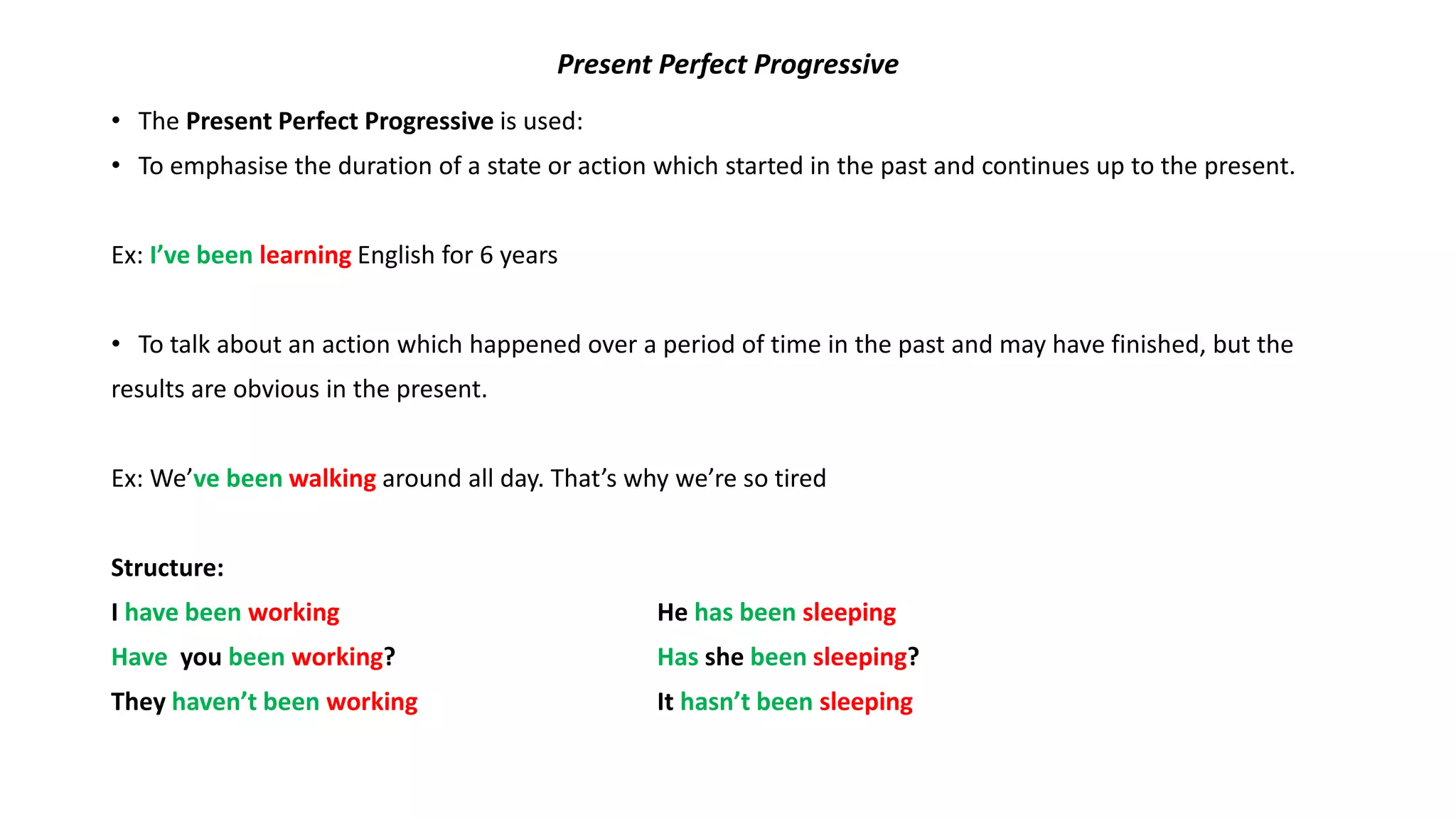This document provides a review of the present perfect simple and present perfect continuous tenses in English. It discusses how the present perfect simple is used to talk about past actions without a specific time or ongoing states. Examples are given such as "I've already done that" and "Mary has had her dog since September." Time expressions that can be used with the present perfect simple are also outlined. The present perfect continuous is then explained as emphasizing the duration of past actions or states that may have finished but still affect the present, like "We've been walking around all day. That's why we're so tired." An exercise is provided to help practice these tenses, with answers given to allow for self-evaluation.








